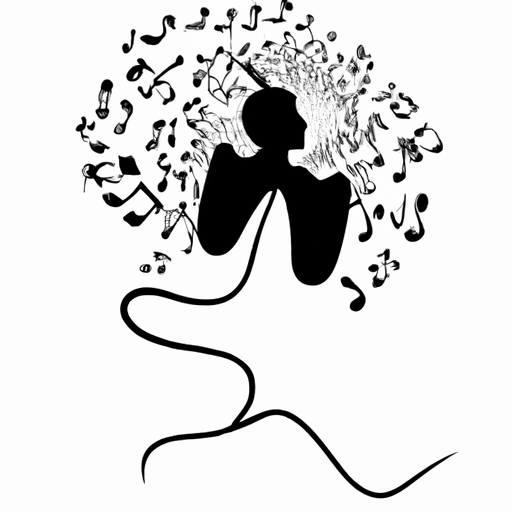Exploring the Positive Impacts of Music on Mental Health
Music has long been used as a form of therapy and self-care, and its therapeutic benefits have been studied extensively by researchers and mental health professionals. Music can be used to help manage stress and anxiety, providing both emotional and physical relief from the daily pressures of life. It can also help create a sense of calm, allowing individuals to focus on the present moment and find peace and relaxation. In this article, we will explore the positive impacts of music on mental health, discussing the ways in which music can be used as a form of self-care, the therapeutic benefits of listening to calming music, and how music can be used to help manage stress and anxiety.
The Benefits of Music as Self-Care
Music can be used as an effective form of self-care, providing a sense of comfort, relaxation, and self-expression. Listening to music that is calming and positive can help to reduce stress and anxiety, improve mood, and even help to improve self-esteem. Music can also be used to help individuals cope with difficult emotions, providing a safe space to explore and process what they are feeling. Music can also provide a distraction from negative thoughts and feelings, allowing individuals to take a break from overthinking and rumination.
The Therapeutic Benefits of Listening to Calming Music
Listening to calming music can be a powerful form of therapy, providing relief from stress and anxiety and helping to reduce symptoms of depression. Calming music can help to create a sense of relaxation and peace, allowing individuals to focus on the present moment and find a sense of stillness. Research has also shown that listening to calming music can help to reduce physical tension, lower blood pressure, and even improve sleep quality.
Using Music to Manage Stress and Anxiety
Music can be an effective tool for managing stress and anxiety, providing a sense of comfort and relaxation. Listening to calming music can help to reduce the physical and emotional symptoms of stress and anxiety, including increased heart rate, tightness in the chest, and difficulty concentrating. Research has also shown that listening to upbeat music can help to boost mood and reduce stress levels, providing a sense of positivity and motivation. Additionally, music can be used to create positive associations with activities, such as exercise, that can be beneficial for mental health.
Interviewing Music Therapists, Experts, and Individuals
To further explore the positive impacts of music on mental health, it is important to interview those who are knowledgeable in the field, such as music therapists, experts in the field, and individuals who have found personal benefit from incorporating music into their mental health regime. By hearing their experiences and perspectives, we can gain further insight into the therapeutic benefits of music and the ways in which it can be used to improve mental health.
Conclusion
In conclusion, music can be an effective form of self-care and therapy, providing a sense of comfort and relaxation and helping to reduce stress and anxiety. Listening to calming music can provide physical and emotional relief, while upbeat music can provide a sense of positivity and motivation. By interviewing music therapists, experts in the field, and individuals who have found personal benefit from incorporating music into their mental health regime, we can gain further insight into the therapeutic benefits of music and the ways in which it can be used to improve mental health.
















Comments
Leave a Comment